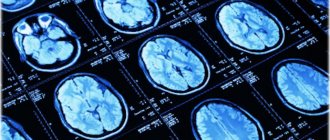Every minute, at every airport on the planet, an airplane with passengers on board takes off. 70% of people sitting in the cabin experience fear of flying, which is quite natural. But not everyone is able to cope with their phobia. To understand how not to be afraid of flying on an airplane, you need to understand the reasons for this fear.
Fear of flying
Causes of fear
Fear of flying on an airplane is a natural symptom characteristic of any person. Some people know how to drown it out and ignore it, while others, “making a mountain out of a molehill,” turn everything into a phobia. This happens for many reasons, and the roots of the problem lie in the subconscious.
- Reflexive fear is transmitted to people with a gene code from ancestors who were frightened by the first “iron birds”. For this reason, a person involuntarily shrinks when an airplane flies nearby;
- When an airliner takes off into the sky, the human body intuitively reacts with alertness - it has been torn out of its familiar environment. Those who are psychologically susceptible to phobias begin to get nervous and sometimes seriously panic, not always realizing the cause of their fear;
- Some people are afraid to fly on a plane consciously, having watched enough thrillers about plane crashes, although the real news is not full of daily reports about plane crashes. Such alarmists prepare themselves ahead of time for the tragedy of the situation;
- Usually people are afraid of flights carried out for the first time - here the fear of the unknown is frightening. There is also a category of people for whom the first flight was unsuccessful due to poor health on board. Mistaking severe motion sickness for danger, the subconscious imposed a taboo on this method of movement, and psychological perception turned it into a phobia.
Stress during flight
Note! Whatever the reason for fear when flying, you need to figure out how much of it is a phobia (or just an uncomfortable feeling of an unusual environment).
What is aerophobia
Anxiety is a natural psychophysiological response that aims to mobilize the hidden capabilities of the human body in an unsafe or unusual situation. Any phobia is caused by a hyperbolic manifestation of anxiety from a specific stimulus. It is expressed in obsessive fear that arises in conditions that provoke it. It is impossible to explain this logically. When the disorder is completely formed, the person is afraid and avoids specific actions or situations.
With the development of air communications and the advent of the possibility of mass passenger transportation, a new kind of inexplicable fear arose. Aerophobia is an exaggerated fear of flying in an airliner, causing many people to suffer. Fear of flying makes you less mobile. You cannot travel serenely or get a job that requires travel. Fear of flying deprives you of the joy of seeing many distant and interesting places. Aerophobia prevents you from living a full life.
Important! Most aerophobes believe that it is impossible to overcome their inexplicable fear of flying. Therefore, they deprive themselves of the opportunity to travel by air.
There are two types of fear of flying:
- Excitement on the eve of a flight is a sign of a natural instinct of self-preservation.
- Obvious pathological fear of flying.
There are several effective ways to deal with the fear of flying on an airplane, but for this you must make sufficient efforts.
Symptoms
Can pregnant women fly on an airplane?
Aerophobia is not the only type of fear that people suffer from. There are those who are afraid of heights and confined spaces, as well as unfamiliar company. It is these fears that can cause a panic attack. To understand how aerophobic you are, you should try on the following symptoms of the problem described:
- You begin to feel fear of flying on an airplane long before the trip, and are unable to control your internal panic;
- Before you board the plane, you take a sedative dose of alcohol, sedatives or antidepressants;
- When an airliner takes off and lands, you unconsciously squeeze into the passenger seat, your palms sweat, and your fingers frantically dig into the armrests;
- During the flight, your entire consciousness is focused on monitoring the sounds of the engines. If the view of the window allows, you do not take your eyes off the running engines;
- If the plane gets into a zone of turbulence, the situation puts you in shock, and you mentally say goodbye to life;
- Every action of the flight attendant makes you suspicious, and you try to understand what she is hiding behind her smile.
Note! If you have even half of these signs, you are an aerophobe, for whom flying becomes a real punishment.
Crystal clear
According to the creators of Fresh Lavatory, this restroom is capable of cleaning itself: after a passenger leaves it, ultraviolet lamps disinfect the cabin, and water automatically washes the sink. The air toilet is equipped with sensors, which allows you to avoid touching the tap and other buttons. No germs!
The future of passenger aircraft
How to smooth the situation
At what age can you fly on an airplane without your parents?
When a person submits to his fears, it develops into a serious illness. If traveling by plane is not perceived as a natural event, it can be made more relaxed. To do this, you just need to distract yourself from your phobia by switching to something else.
Better relax
- Knowing about the upcoming flight, you can prepare for it in advance. You shouldn’t study reports about plane crashes that have already occurred; it’s better to look at the statistics of accidents occurring on Earth. Many more people die in DPT than in the air;
- To prepare yourself psychologically for the flight, it is advisable to register in advance and ask for a seat away from the windows. While the plane is loading, you calmly settle into your seat. You shouldn’t ask for space in the tail zone either – turbulence is most noticeable there;
- Before a flight, it is not recommended to calm yourself down with alcohol or serious drugs - they can provoke an inadequate reaction. Coffee, which has a stimulating effect on the psyche, will not help either. It is better to always have motion sickness pills and fruit lozenges with you;
- In order not to succumb to the phobia, you need to distract yourself, so you should take an interesting book or magazine with crossword puzzles on the road, download a movie with an exciting plot to your laptop or tablet, or occupy yourself with an exciting game;
- Listen to pleasant, soothing music coming from your headphones, it will help drown out the sounds of the engines. You can download a relaxation music library to your player especially for the flight;
- Chat with your seatmates. Talking is a good way to take your mind off your fears. Even if the same aerophobe as you is sitting next to you, mutual communication will help you cope with the problem;
- If you don’t want to have small talk or distract yourself from bad thoughts with idle activities, you can just sleep. To do this, just take an inflatable pillow and a blanket (as well as earplugs and a blindfold) into the cabin. If you forgot about this option, some airlines may offer you bedding;
- You don’t even have to sleep - you can just lie with your eyes closed and remember the pleasant moments of your life, think about an upcoming meeting, remember loved ones or make plans for the coming year.
Additional Information! Have you taken all the measures, but the state of panic does not go away? Then do some breathing exercises. The exercises are done like this: first, inhale deeply through your mouth, hold it in your lungs for 5 seconds, then exhale for another 4 seconds. don't breathe. Repeat the steps several times: this will help you calm down very quickly.
Meat or fish?
Let's be back for lunch. All in-flight food is prepared on Earth, then it is cooled and heated on the plane. It is not surprising that after this the food is not always to the taste of the passengers. To keep airline customers happy with their meals, new technologies emerge every year, such as sous-vide cooking in a sealed bag and the first induction cooktops for airplanes.
The future of passenger aircraft
Professional help
Why do you dream of flying on an airplane?
If fears of flying have been present for a long time, and traveling by plane is a frequent forced reality, you cannot do without the help of a specialist. It is worth paying serious attention to your psycho-emotional state, devoting enough time to it.
- Find an experienced psychologist who will help you figure out why you are afraid of flying and teach you how to deal with your phobia correctly. You can’t get rid of this with just a conversation - you’ll have to undergo a course of psychotherapy before you begin to perceive flying more naturally and stop being afraid of flying;
- Part of the treatment is the use of flight stimulators, which allow you to become accustomed to flying using virtual simulators. This point is good because in grounded conditions, in a specially equipped room, a feeling of the reality of flight is created;
- The doctor will help you choose medications for the upcoming trip. Here you need to take into account that the proposed pills are not a solution to the problem, but only part of the therapy, and they do not relieve the phobia on their own.
Virtual reality simulator
Medicines prescribed by a doctor for a flight can be divided into 2 types: cumulative and rapid-acting. The first group includes those that are accepted in several stages - immediately before departure, and then every half hour or hour. The second group of drugs has a sufficient concentration of sedative so that 1 tablet is enough for several hours of exposure.
Treatment is carried out with sedative and anti-anxiety medications that inhibit nerve impulses and relieve muscle spasms and cramps.
Important! The doctor himself decides which drug to treat an aerophobe, based on the individual characteristics of the patient, his state of mind, the causes of fear, and the severity of the problem.
You should not constantly resort to these means, since most of them can become addictive. This method of treating aerophobia should be short-term and applied to those who do not travel by plane very often.
The person himself can prepare for a future flight in advance. About 3 weeks before your upcoming trip, you can start taking glycine or valerian extract daily in the doses indicated in the instructions. This will help reduce nervous tension and avoid stressful situations.
Laws of physics
Some people are terrified of flying precisely because they are cut off from the Earth. Not everyone understands the principle of aerodynamics, so they don’t fully understand how such a heavy metal colossus with a bunch of passengers on board and a large amount of luggage can stay in the air for several hours.
If you are flying for the first time, to calm your imagination and stop being afraid, it is worth familiarizing yourself with some design features of aircraft:
- Airliners are equipped with powerful engines that can not only lift a plane into the air, but also hold it for a long time among the clouds;
- There is no need to be afraid that the engines will break down: the plane has at least 2 of them. If 1 motor fails for some reason, the 2nd one will take over its function. Even if both engines fail at once, the plane will be able to land carefully, like a glider;
- The wings, which are quite firmly attached to the body, help the airplane stay and glide in the air. The chance that they will fall off in flight is reduced to zero;
- All systems equipped with airliners have duplicate programs. As soon as a failure occurs, the backup system immediately comes into operation (and there are at least 4 of them in passenger aircraft);
- You don’t have to worry about the risk of getting into a plane crash due to the pilot’s poor health - the planes have a reliable piloting system that allows you to carefully land the car according to the program built into it;
- The flight of each aircraft is controlled from the ground by air traffic control services, with which the pilots are in constant contact. Pilots will be immediately notified of all unusual situations and changes in weather conditions;
- The turbulence zone, which not every plane encounters, should not be scary. The aerodynamic parameters of the design are calculated taking into account this natural phenomenon, so that the aircraft has a sufficient margin of safety to withstand such shocks;
- There are professionals on board who do not consider themselves kamikazes. They calmly carry out their duties, as they are confident in the reliability of the “steel bird”.
Pre-flight technical inspection of the aircraft
Additional Information! For an extraordinary situation to occur, fate will have to try, because each plane is carefully checked by technical services before departure. They use special diagnostic devices, so faulty equipment will not even be allowed onto the runway. Customs inspection at the terminals has been strengthened, which prevents dangerous baggage from getting on board.
Expanding the boundaries
The new wide-body Airbus A330neo features improved engines that reduce fuel consumption by 14% and emissions by 10%. The innovative LED lighting system allows you to paint the aircraft interior in any color: the palette includes 16 million shades. The vessel is designed for 252 or 310 passengers, depending on the layout. The A330neo should begin operations in 2017.
The future of passenger aircraft
Advice from the “experienced”
Don’t be shy to admit to others: “I’m afraid to fly on an airplane.” Among your friends there will be people who have already flown several times. They know what to do to overcome their fear. Take their advice to heart.
You will also be impressed by the reviews of third-party people who have learned to subdue their fears:
- Dmitry: “I used to be afraid of flying on an airplane, although I could not understand the reasons for this. On one of my business trips I fell in love with a beautiful girl. Now I fly to her on a date every Friday. During the flight, I only think about the upcoming meeting, making plans for how we will spend our time. Now, while I’m on board, I’ve never had a feeling of anxiety or panic”;
- Olga: “I am constantly overcome by some kind of fear. I am not comfortable in enclosed spaces, I am terrified of getting into a plane crash. Because of this, I lost a very profitable job - in our business, even minutes matter. Airplanes, the best option for mobility, allow you to quickly solve problems. I used the car exclusively, losing time and clients. As a result, I had to see a psychotherapist and undergo special training. Even now, I am periodically driven by unconscious emotions, but I try to control them. Realizing that phobias are a game of my subconscious, I took the risk of using the airline’s services and have already managed to make 2 flights.”
Symptoms of fear of flying
Almost all people who have flown or are planning to do so feel anxiety and discomfort. But this is not necessarily aerophobia. Panic fear of airplanes (phobia) has a number of symptoms:
- while in the cabin, your hands sweat and tightly grip the armrest;
- increased heart rate and breathing;
- throughout the flight, listen to the sounds of the engine;
- afraid to look out the window;
- are afraid of closed spaces;
- fear of turbulence;
- every movement of the flight attendant seems suspicious, you try to decipher her emotions;
- before the flight there is a desire to drink sedatives or alcoholic drinks.
If the phobia is not treated
When it is impossible to avoid flying, and you are terrified of it, problems not only of a psychological nature begin. If you do not learn to cope with fears, the phobia completely absorbs the person, turning him into a gloomy neurasthenic.
- Before an upcoming flight, a person begins to be overcome by panicky thoughts, as a result he is tormented by nightmares, or he cannot sleep at all;
- Becoming irritable and sleep-deprived, the aerophobe lashes out at people close to him, causing family relationships to deteriorate;
- Those who hide their fears find it even more difficult to endure flying. A phobia driven deep into oneself leads to the development of heart disease, hypertension, and heart attacks;
- If the need to fly is related to professional activities, every attempt to delay the flight or replace it with another type of movement affects career growth. Psychological shocks on this occasion make the aerophobe a patient in the neurological department;
- The fear of using the services of airlines impoverishes your vacation - not every resort can be quickly and easily reached by rail (let alone by car).
Important! Any type of phobia will progress quickly if you subordinate your psyche to it and refuse the help of professionals.
Hoping that he can cope on his own, a person resorts to using powerful psychotropic drugs or alcohol. The more often the need to fly arises, the faster the bad habit develops. Such doping does not make the situation easier, but makes it even worse.
Alcohol in conditions of low pressure and dry air in the aircraft cabin can cause lightheadedness (sometimes with vomiting). The body is in a suspended state, and even a small amount of alcohol at an altitude of several thousand meters from the Earth can cause severe intoxication, which results in loss of strength. This immediately worsens a drunk person’s mood, and panic sets in with even greater force.











